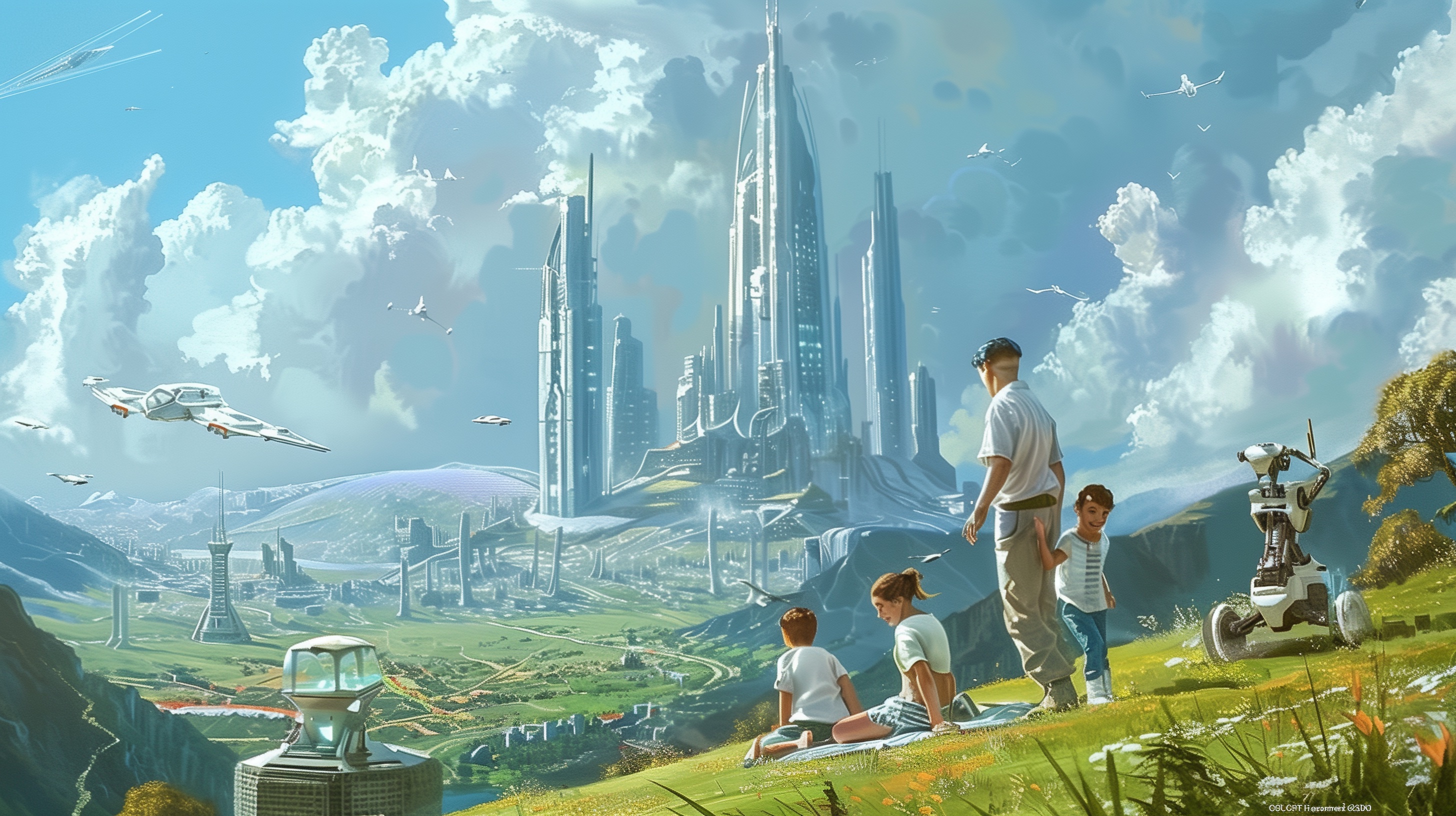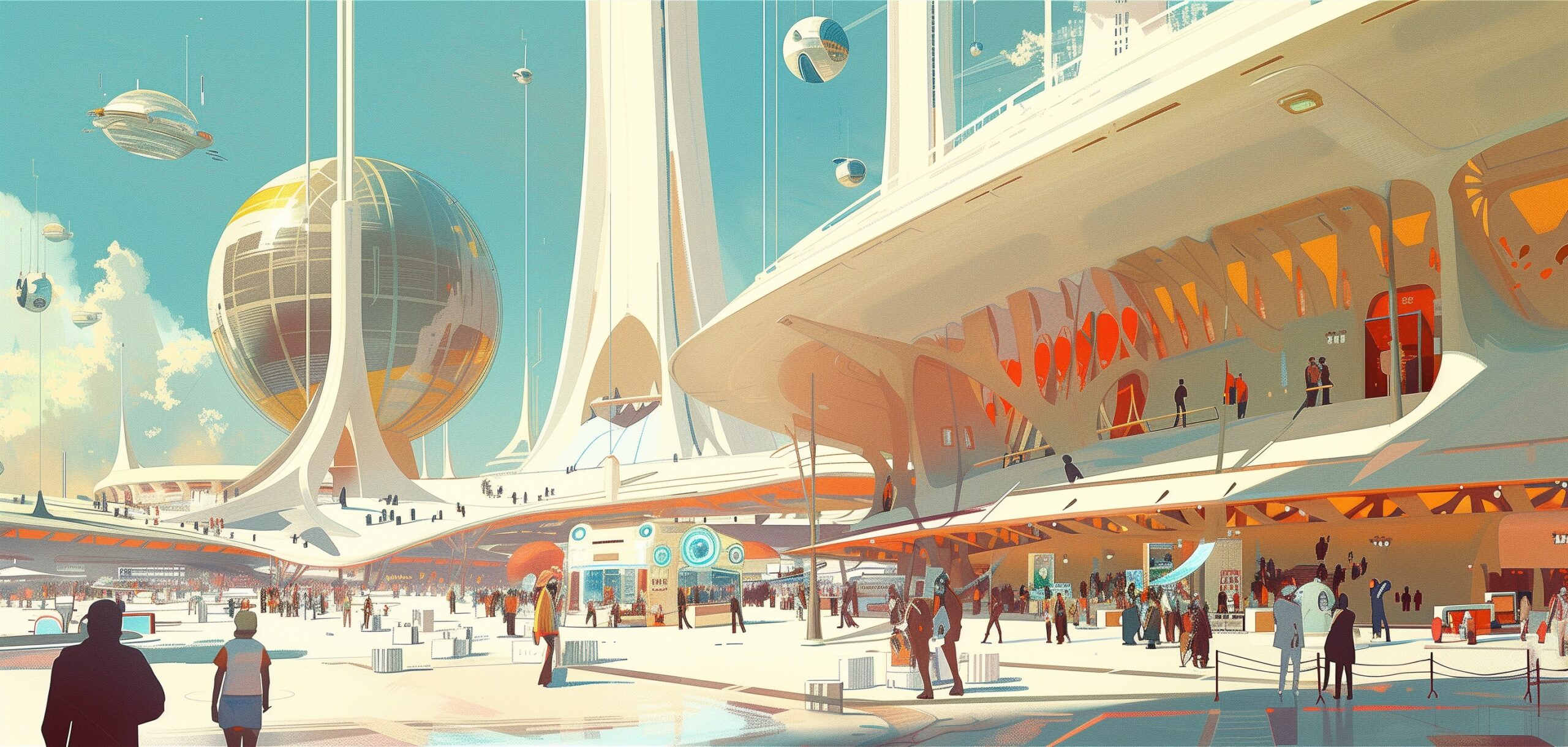Recent Discussion

Humans are a curious species: We have a need not only to do, but to explain what we are doing—to each other and above all to ourselves. Movements begin with practice, but as they evolve, they need theory in order to maintain the coherence needed to change the world. Providing this is the role of what Joel Mokyr calls the “cultural entrepreneur,” whose function is “formulating a coherent doctrine that the followers can all accept as the consensus central message.”
The progress movement needs such a doctrine, and it has long been my intention to offer one. Years ago I thought that I would write a comprehensive history first, as the empirical foundation for philosophy. But the need for the doctrine has become too pressing, and I’ve decided...
Where We Are
There is a sense of unease and aimlessness in the Western world. All the most obvious eternal human problems have been solved in the Western world: hunger, shelter, and security. This is great. This is huge. Our ancestors wouldn’t believe it. We live in their paradise.
But it leaves us with a big void where once we had a coherent, unifying purpose. What are we about now? What is it all about, if not getting through the next winter, drought, famine, or war? What are we doing here? Where are we going?
It’s not just a feeling, a passing thought. Our internationally agreed-upon metrics tell us we have made it, that we’ve developed our societies as much as we can. According to the Human Development Index and...
This is a reminder announcement that applications for Pathways to Progress’ book discussion series close on Sunday, July 21st at 11:59 PM ET.
We aim to create a community of individuals committed to exploring and contributing to human prosperity. We will discuss technological and scientific innovation to foster a deep understanding of the mechanisms behind human advancement. Readings will investigate historical examples of progress, the implications of economic growth on moral progress, and the relationship between technological progress and societal change.
We will meet bi-weekly over Zoom to discuss a book, followed by a Q&A conversation with the author. We will have regular podcast-style conversations with other guests, who currently include Alec Stapp, Rasheed Griffiths, and Kurtis Lockhart. We will post conversations on our YouTube channel.
Here are the details...
Paper Abstract
This article investigates reasons to participate in non-deterministic elections, where the outcomes incorporate elements of chance beyond mere tie-breaking. The background context situates this inquiry within democratic theory, specifically non-deterministic voting systems, which promise to re-evaluate fairness and power distribution among voting blocs. This study aims to explore the normative implications of such electoral systems and their impact on our moral duty to vote. We analyze instrumental reasons for voting, including prudential and act-consequentialist arguments, alongside non-instrumental reasons, assessing their validity in the context of non-deterministic systems. The results indicate that non-deterministic elections could strengthen the case for voting based on prudential and act-consequentialist grounds due to their proportional nature and the increased influence of each vote. We conclude that, while non-deterministic elections strengthen our duty to vote overall, they do not strengthen it for all the arguments in the literature. This paper contributes to the discourse on electoral systems by critically evaluating the moral obligation to vote in non-deterministic elections.
The American school system, grades K-12, leaves much to be desired.
While its flaws are legion, this post isn’t about that. It’s easy to complain.
This post is about how we could do better.
To be clear, I’m talking about redesigning public education, so “just use the X model” where X is “charter” or “Montessori” or “home school” or “private school” isn’t sufficient. This merits actual thought and discussion.
Breaking It Down
One of the biggest problems facing public schools is that they’re asked to do several very different kinds of tasks.
On the one hand, the primary purpose of school is to educate children.
On whatever hand happens to be the case in real life, school is often more a source of social services for children and parents alike, providing food and safety...
For comparison, Baltimore City public schools have a budget of $1.7 billion and about 78,000 students, or about $21,800 per student (although it’s reported that they only spend $16,370 per student; I’m not sure where the discrepancy comes from). Also note that, in Baltimore City’s budget, they report spending about 1/3 of their budget on support services, as opposed to instruction.
most of the time if you look close there is an * on official $/child stats, which excludes buildings, 'long term' costs(bond repayments), and cross-government payments(school/dis... (read more)
We are excited to re-launch Pathways to Progress as a book discussion series to provide a niche guide into the ideas of Progress Studies.
We aim to create a community of individuals committed to exploring and contributing to human prosperity. We will discuss technological and scientific innovation to foster a deep understanding of the mechanisms behind human advancement. Readings will investigate historical examples of progress, the implications of economic growth on moral progress, industrial policy, and the relationship between technological progress and societal change.
We will meet bi-weekly over Zoom to discuss a book, followed by a Q&A conversation with the author. We will have regular podcast-style conversations with other guests, who currently include Alec Stapp, Rasheed Griffiths, and Kurtis Lockhart. We will post these on our YouTube channel.
Here...
It’s the near future and a smog has blotted out the sun. The world would have starved if it weren’t for the mung-protein-soy-algal flour distributed by the government—the only thing left to eat now that the crops and animals have died.
Such is the setting in C Pam Zhang’s novel Land of Milk & Honey, where one wealthy investor has purchased the last sunny mountaintop in Italy and leased the land to the investors who funded it. There are riots against them of the “kill the rich” variety, but it’s a high-security compound and the only way in is to join.
One chef does. She misses food, taste, and manages to get a job cooking the last vegetables harvested from their indoor labs, and the last animals bred in...

The progress movement has grown a lot in the last few years. We now have progress journals, think tanks, and fellowships. The progress idea has spread and evolved into the “abundance agenda”, “techno-optimism”, “supply-side progressivism”, “American dynamism”. All of us want to see more scientific, technological, and economic progress for the good of humanity, and envision a bold, ambitious, flourishing future.
What we haven’t had so far is a regular gathering of the community.
Announcing Progress Conference 2024, a two-day event to connect people in the progress movement. Meet great people, share ideas in deep conversations, catalyze new projects, get energized and inspired.
Hosted by: the Roots of Progress Institute, together with the Foresight Institute, HumanProgress.org, the Institute for Humane Studies, the Institute for Progress, and Works in Progress magazine
When:...
Will be quite curious to see if this conference is sufficient to revive this forum.
American left isolationism
The recent (premature!) obituary of Noam Chomsky has revived the controversy about his views on foreign policy. For almost his entire life, Chomsky has been a Khomeini level critic of American foreign policy. Against public perception, Chomsky was not a Marxist, but probably the exact opposite: he was the canonical (foreign policy) Anglo radical.
The core of Anglo radicalism (perhaps since the English Civil War) has been a commitment to activism by its own shake. The Karl Marx of Anglo radicals was Saul Alinsky, and chomskism is simply foreign policy alinskism. Unlike the Marxist, the Anglo radical avoids the burden of constructive engagements, and devotes himself to denunciation. His technique is to show costs and injustices, and carefully distract attention from trade-offs. The Anglo radical is practical,...
Crossposted from Effective Altruism Forum: https://forum.effectivealtruism.org/posts/vjQ5BhKnDyY35dXXf/chomsky-vs-pax-democratica

Thanks!
I just updated https://rootsofprogress.org/manifesto with links to everything that's been published so far, and will try to keep it up to date.
By agency, I mean two closely related things.
- It is the belief that we can make choices and that those choices matter and can be effective, that we can to some significant degree control our lives and shape our future, both as individuals and as a society. The opposite of this is fatalism, the belief that we're being carried along by forces outside our control and that we don't have any choices or that they do
... (read more)